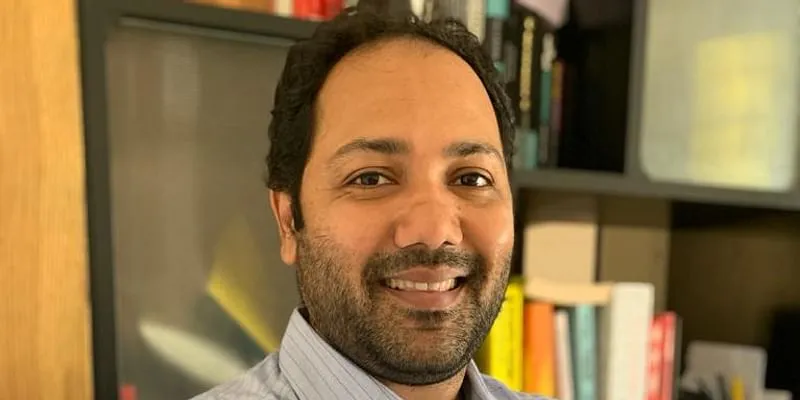This business is tackling mismanagement of plastic waste; aims to open one of India’s largest recycling factories
Started in 2012, Lucro Plastecycle Private Limited claims to be one of India’s largest suppliers of recycled packaging and protective covers, serving over 200 customers across different sectors.
COVID-19 may have brought the world to a standstill but it has also compelled human beings to take a better look at how we use our resources. It has woken up the world to the damage done to the environment and the planet at large.

Ujwal Desai, Co-founder and Managing Director, Lucro Plastecycle Private Limited
Take plastic waste mismanagement, for example, a problem plaguing the Earth for decades, especially in India.
According to a report by the United Nations, the world produces 400 million tonnes of single-use plastic (SUP) waste annually (47 percent of the total plastic waste). It is also estimated that only nine percent of the plastic is getting recycled worldwide.
Companies like Plastecycle Private Limited have been trying to manage the situation, and save the plant from being choked to death. The Mumbai-based company was started in 2012.
The co-founders tell us that Lucro has grown by 100 times over the past eight years. It claims to be one of the largest suppliers of recycled packaging and protective covers, serving over 200 manufacturers and customers across different sectors including Mercedes Benz, Maruti Suzuki and Marico .
SMBStory spoke to Ujwal Desai, Co-founder and Managing Director, Lucro Plastecycle Private Limited.
Edited excerpts from the interview.
SMBStory (SMBS): What does Lucro Plastecycle Private Limited do and what was the inspiration behind starting the company?
Ujwal Desai (UD): Lucro Plastecycle Private Limited specialises in difficult to recycle film plastic waste, specifically focusing on flexible packaging. Flexible packaging is something people don’t tend to recycle because it’s very difficult to do but we try to drive out value out of this plastic waste.
In 2012, I, along with two of my friends (the other co-founders of the company), started Lucro, which was merely a trading company at the time. We used to trade some automotive plastic products. Soon, we realised how much harm plastic was causing to the environment.
We thought of applying the concept of the circular economy here; turning plastic waste into valuable products really helps to counter the problem. The move from ‘misuse to reuse’ of plastic can make a positive difference in all spheres of life.
In 2016, we set up our first manufacturing unit in Umbergaon, Gujarat. That's how the company came into being.
Over the years, we have grown a lot. We are a team of 120 today and have set up two more manufacturing units in Umbergaon itself. Collectively, the capacity of all three units is 400 metric tonnes a month. Looking ahead, we aim to increase our current capacity five-fold with the investments we have received.
SMBS: Where do you source the waste material from and what are the next steps?
UD: We collect waste from various sources. For instance, the most fundamental source is the ragpicker, who collects waste from households and streets. Secondly, we also collect waste from scrap aggregators who are also called kabadiwalas. We also have several other retail touchpoints, distribution channels, and waste from industries.
Once all the waste is collected from all these places, the next step is their segregation in our factories where we recycle them and make new products like shopping bags, garbage bags, shrink wraps, automotive covers, and much more.
We cater to most of the big industries using flexible film applications, including retail, FMCG, and automotive, and even export our products to different countries including the US and Europe.
SMBS: What are the challenges associated with this kind of business?
UD: The business is highly labour intensive, which is the first and the foremost challenge.
Secondly, we have a process called ‘Plast-E-CycleTM’, which begins right from the collection of waste and ends when the final product is ready. So, to ensure that this process takes place seamlessly is another challenge.
However, the biggest challenge and achievement has been to segregate the plastic waste uniformly and extract value out of it. This industry is highly fragmented and unorganised with inefficiencies at almost every level.
Despite that, we believe we have been able to create a difference — both environmentally and economically.
SMBS: What are some of the challenges that you faced on the policy front?
UD: Right now, recycling is not considered an essential service in India. Making it one is one area of focus for us. Moreover, making it a part of the essential services can help in saving the livelihood of so many people associated with it, especially in times such as that of COVID-19.
Having said that, it is true that the government has taken some initiatives that have provided an impetus to companies like ours. For instance, the government of Maharashtra has rolled out a policy according to which every industrial packaging that is produced needs to have at least 20 percent recycled material.
If other state governments roll out similar policies, then it will definitely bolster the recycling sector in general.
SMBS: How are you coping with COVID-19? What are your plans for the future?
UD: COVID-19 has proven to be a huge disruptor for not just India but also the world. Our factories have been shut except for one silver lining, which is the production of some medical waste bags and other products used in hospitals and in the pharmaceutical industry. We have been operating at a 20 percent manufacturing capacity. Rest, all our operations closed.
However, in the post COVID-19 era, when the lockdown is lifted, we are looking forward to opening another recycling facility, which will be one of the largest in India.
Recently, Singapore-based Circulate Capital Ocean Fund (CCOF) invested an undisclosed amount in our company and we hope to utilise the funds in building collection and recycling centres and for R&D in different recyclable products.
Edited by Saheli Sen Gupta









